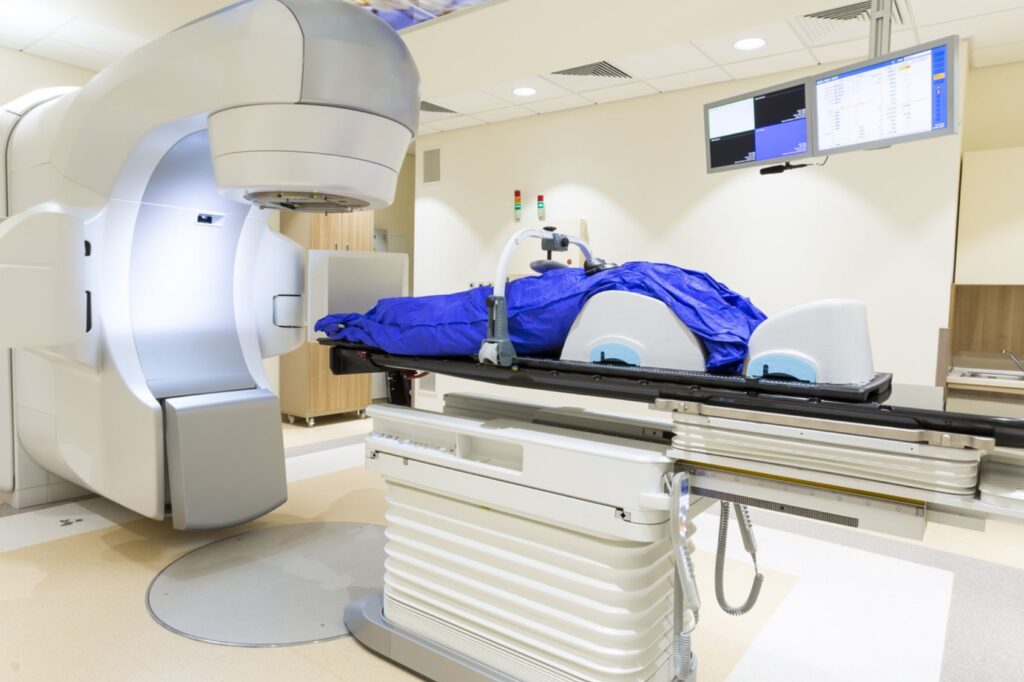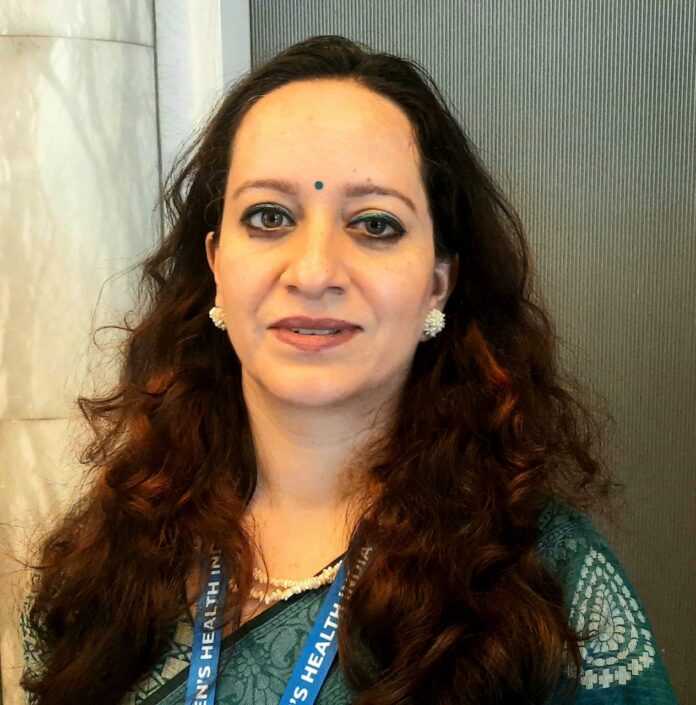Dr. Kanika Sood Sharma, Clinical Lead and Director of Radiation Oncology at Dharamshila Narayana Superspeciality Hospital, boasts over 18 years of diverse experience in cancer treatment. Notably, she pioneered the first Total Body Irradiation (TBI) globally using the innovative Halcyon Linac, showcasing her commitment to advanced practices. Dr. Kanika Sood Sharma earned gold medals during her MBBS and MD in Radiation Oncology from Indira Gandhi Medical College & Hospital, Shimla, specializing in preventive oncology through cutting-edge technology.
In an exclusive interaction with The Interview World, Dr. Kanika Sood Sharma discusses the evolving healthcare landscape in India. She emphasizes the need to address the complexities of cancer treatment and suggests policy measures to improve the healthcare scenario. Furthermore, she highlights how technological advancements can democratize access to healthcare facilities. Lastly, she sheds light on the psychological aspects of cancer treatment. Here are the key insights from her interview.
Q: How is the landscape of Indian healthcare evolving to address the complexities of cancer treatment, particularly in the realms of oncology and female-specific cancers?
A: The predictions for the next 20 years paint a grim picture. Specifically concerning women’s cancer, the numbers are projected to skyrocket, posing significant challenges to healthcare systems.
This surge is largely due to our current lack of preparedness to handle such high caseloads. Presently, the shortage of oncological resources is starkly evident; for instance, if we require 1000 radiation machines, we only have 50 available.
In the public sector, accessing timely treatment for stage 1 cancer is already a daunting task. Patients often face a wait of 3 to 4 months for radiation therapy. Unfortunately, during this waiting period, the cancer can progress from stage 1 to stage 2 or even stage 3.
Given the current strain on resources, we must adopt a more proactive approach to addressing this issue. Failure to do so will inevitably result in a severe scarcity of healthcare resources in the next two decades.
Q: What policy measures or recommendations do you suggest to effectively address the pressing cancer crisis within the country?
A: To effectively address the issue, we must operate on two fronts.
Firstly, we must focus on prevention. It’s crucial to identify and alter factors contributing to cancer, as approximately 40% of cancer cases are preventable. Specifically concerning women’s cancers, preventive measures can potentially mitigate 63% of cases.
For instance, cervical cancer, which accounts for 95% of cases due to human papillomavirus (HPV), can be significantly reduced by widespread vaccination against HPV. Additionally, regular screening for women around 35 years old enables early detection of pre-cancerous conditions, thereby minimizing the likelihood of cancer development.
Early detection not only lessens the burden on healthcare systems but also facilitates outpatient treatments, which can be managed effectively during initial consultations. However, access to affordable treatment remains a significant challenge, especially for the majority of individuals unable to afford cancer care due to its exorbitant costs.
The high expenses associated with medical machinery and steep customs duties further exacerbate this issue. Therefore, fostering domestic production of advanced medical technology can potentially increase accessibility to quality care, even in smaller cities and towns.
Q: Which technological advancements have the greatest potential to democratize access to healthcare facilities, and how can they be effectively implemented?
A: In terms of both diagnosis and treatment delivery, our technological capabilities have significantly improved. However, a persistent challenge remains in late diagnosis, leading to cancer patients presenting at advanced stages. As you rightly pointed out, the increasing prevalence of cancer has led to alarming statements, such as India being labelled the “cancer capital of the world” by recent news sources, including GLOBOCAN‘s projections for the next decades.
The forecasts paint a grim picture, suggesting a surge in cancer cases by 2050 that could overwhelm healthcare systems, especially in countries like India. This looming crisis underscores the urgent need for leveraging technology to address healthcare challenges.
Technology holds immense potential in raising awareness and encouraging timely healthcare access when symptoms emerge. It shouldn’t be limited to wearable devices or basic health-tracking apps; rather, it should encompass a holistic approach. Platforms must prioritize security and privacy, ensuring that users, particularly women, feel safe and confident in accessing healthcare information and services.
By utilizing platforms to disseminate short, informative content on women’s health, we can bridge the knowledge gap and empower individuals to make informed decisions about their health. Furthermore, these platforms should be user-friendly, multilingual, and voice-enabled to cater to diverse populations, especially those in rural areas.
Overcoming geographical barriers requires intuitive technology that speaks directly to users, minimizing the need for extensive typing. Access to healthcare information and services should be readily available, including guidance on where to seek care and assistance in booking appointments.
Empowering women to take charge of their health involves providing them with the tools and knowledge necessary to make informed decisions. Technology plays a pivotal role in this transformation by enhancing accessibility, streamlining processes, and facilitating remote interactions with healthcare professionals.
By integrating technology into healthcare systems, we can streamline processes, reduce waiting times, and allow healthcare professionals to focus on patients with greater needs. Additionally, advancements in AI hold promise for improving diagnostics, enabling early detection, and personalized interventions.
In conclusion, technology stands poised to revolutionize healthcare delivery by empowering individuals, enhancing accessibility, and improving outcomes. Embracing these advancements is essential in addressing current challenges and shaping a healthier future.
Q: How can individuals prepare themselves psychologically to navigate the challenges posed by critical health conditions?
A: When treating any disease, it’s crucial not to only focus on the affected organ but to recognize the patient as a whole individual impacted by the illness. Holistic health, therefore, holds significant importance.
In patients with cancer, mental health often suffers. Initially, they may struggle to accept their diagnosis and the potential need for significant lifestyle changes.
The impact extends beyond physical health; livelihoods may shift, voices may be lost, and organs may be compromised. Psycho-oncology emerges as a vital component in addressing these challenges.
Dedicated psycho-oncologists play a crucial role, engaging with patients from the moment of diagnosis. Their support facilitates adjustment to the new reality of the disease, fostering a positive outlook on treatment.
Cancer isn’t merely a physical battle; it encompasses financial and mental struggles as well. Thus, psycho-oncology assumes paramount importance. Despite its significance, psycho-oncology services remain scarce in many centers. Patients often overlook its importance, prioritizing medicine. However, it’s an essential aspect of overall well-being.



